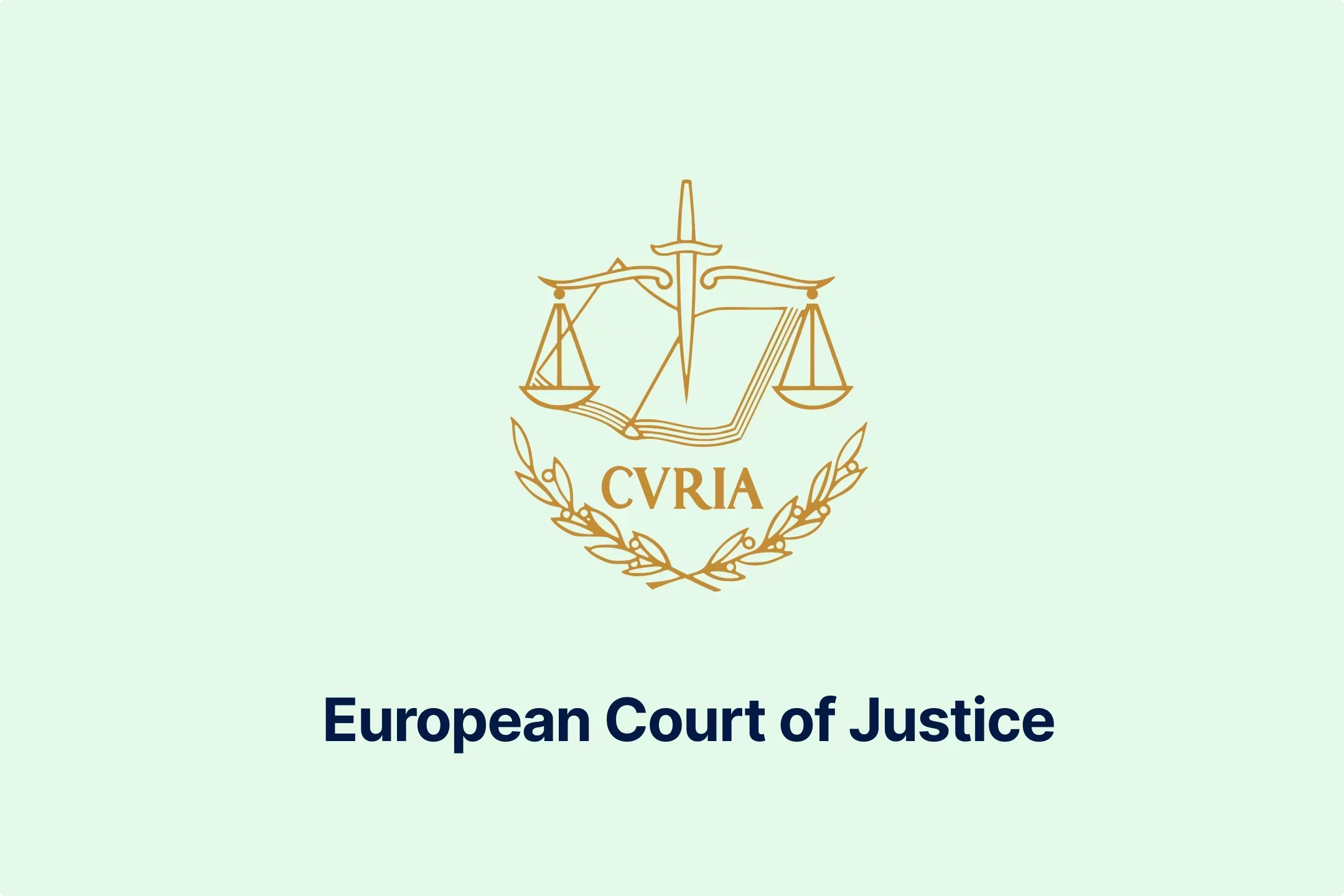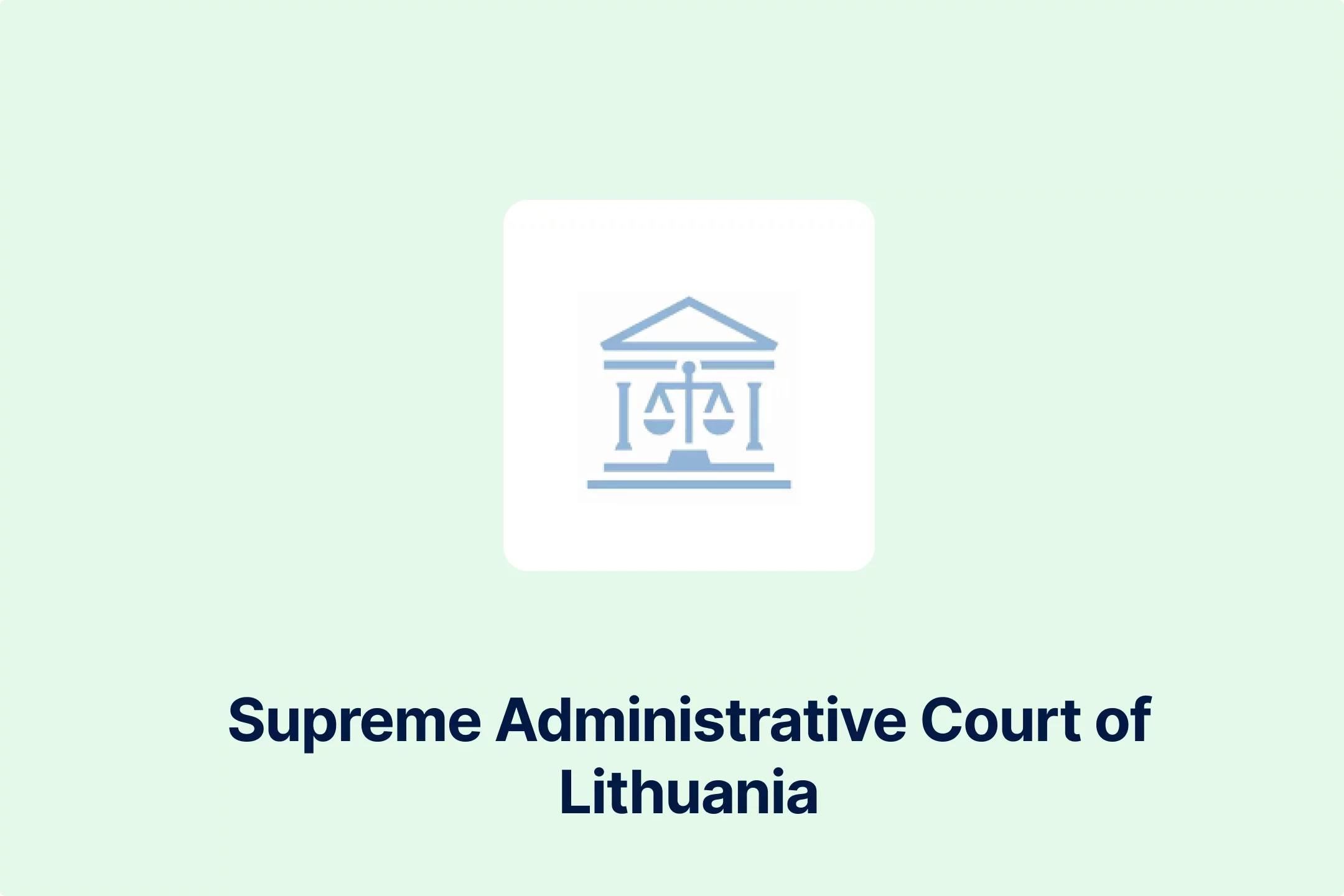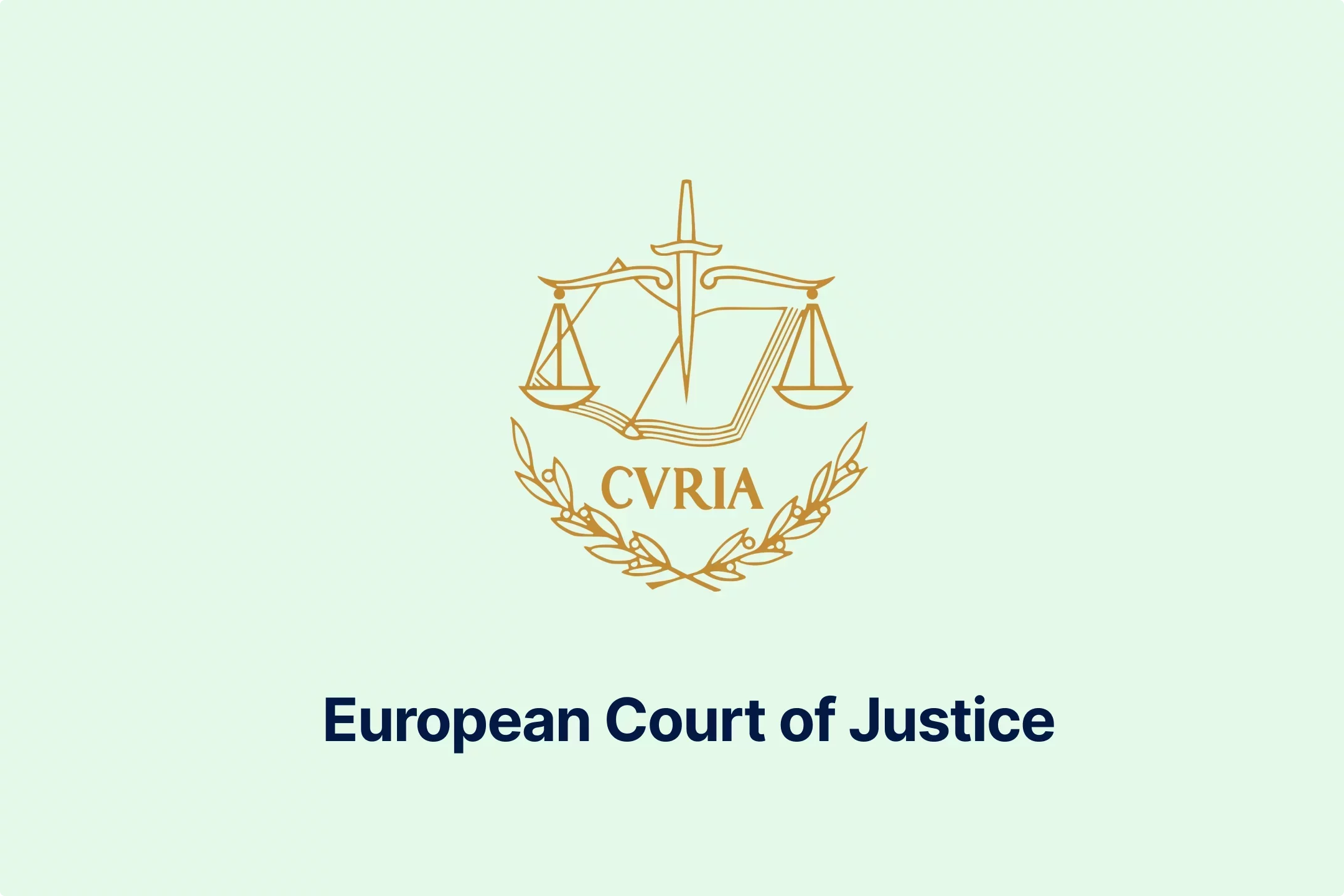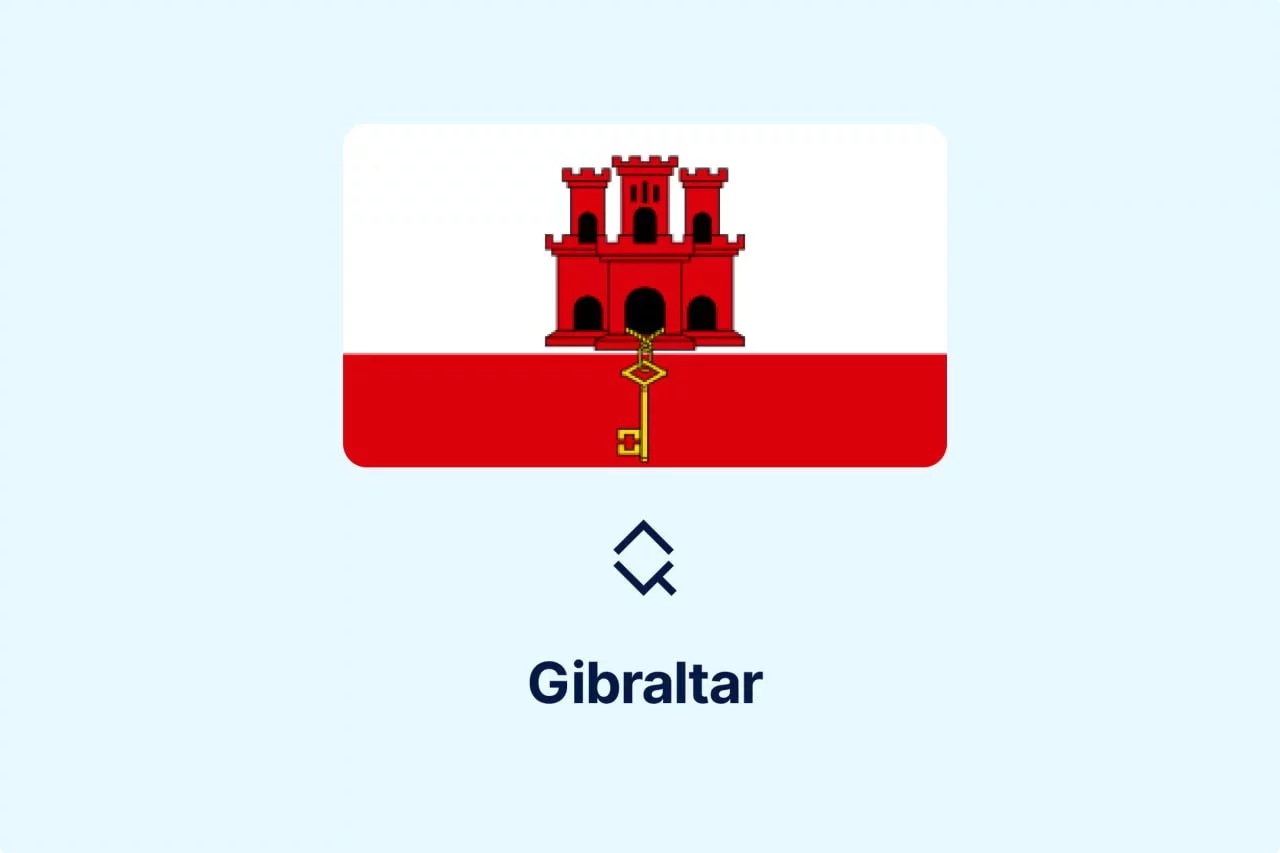Clarifying VAT Place of Supply Rules for Non-EU Roaming Services: SK Telecom Case

🎧 Prefer to Listen?
Get the audio version of this article and stay informed without reading - perfect for multitasking or learning on the go.
The dispute between SK Telecom and the Tax Office of the City of Graz brings the applicable rules for telecommunication services, specifically roaming services, closer. The case focuses on applying VAT rules to roaming services provided by a mobile phone operator based in a non-EU country, specifically South Korea, to its customers, who are also from South Korea but are temporarily staying in Austria, an EU country.
The key issue in the present case is whether the provision of such services by a non-EU country should be regarded as being effectively used and enjoyed in an EU country and whether this interpretation would allow Austria to treat the supply of these roaming services as occurring within its own territory for VAT purposes.
Background of the Case
SK Telecom is a South Korean company that provides mobile phone services to its South Korean customers through roaming services that allow them to use the Austrian mobile network while temporarily in Austria. To provide this service, an Austrian mobile network operator grants SK Telecom access to its network and charges a user fee that includes Austrian VAT at a rate of 20%.
SK Telecom invoiced its customers accordingly for the roaming services used in Austria. As a result, SK Telecom submitted to the Austrian Tax Office a VAT refund request for VAT it had paid to the Austrian operator, using the simplified refund procedure outlined in the Refund Regulation.
However, the Tax Office denied SK Telecom’s VAT refund request because the roaming services SK Telecom charged to its customers were taxable in Austria under the Transfer Regulation, which implements Article 59a of the VAT Directive. The main reason for such a decision was the Tax Office's conclusion that those telecommunications services were not subject to a comparable tax in South Korea and were deemed taxable in Austria.
After the Tax Office rejected the appeal, SK Telecom brought the case before the Federal Finance Court, which ruled in SK Telecom's favor and granted the VAT refund.
Nevertheless, the Tax Office appealed against the Federal Finance Court decision before the Supreme Administrative Court of Austria, which overturned the decision and sent the case back to the Federal Finance Court.
Since the Federal Finance Court still had doubts about whether the Austrian rule aligns with EU regulations, that is whether roaming services used temporarily by non-taxable persons in Austria can be considered as effectively used and enjoyed within Austria under Article 59a, thereby allowing Austria to treat them as taxable within its territory, it decided to pause the proceedings and refer two questions to the European Court of Justice (ECJ).
Main Questions from Request For Ruling
Given its concerns about the compatibility of Austrian law with EU VAT rules, the Federal Finance Court asked whether point (b) of the first paragraph of Article 59a of the VAT Directive should be interpreted to mean that a non-taxable end customer, who is temporarily staying in an EU country and uses roaming services there is considered to be using and enjoying those services within that EU country.
The key factor to this question is that neither the mobile operator providing the service nor the customer has any establishment, permanent address, or usual residence within the EU.
The second question referred to by the Federal Finance Court to the ECJ seeks clarification on whether, under the same article, the place of supply for such services can be shifted to an EU country solely because the third country in which the service provider is established does not impose a tax comparable to EU VAT, even though neither the supplier nor the customer is based in the EU.
Applicable EU VAT Directive Article
Under Recital 22 of the EU VAT Directive, all telecommunications services consumed within the EU are subject to VAT. Additionally, the recital explains that services provided to other taxable persons or customers in non-EU countries should generally be taxed where the customer is located.
Nevertheless, when non-EU companies supply such services to non-taxable persons within the EU who use and enjoy them in the EU, EU countries should treat the place of supply as being within the EU.
Article 1(2) of the EU VAT Directive, which explains the core principle of the EU's common VAT system, was also stated as essential for this case, since it establishes that VAT is a general consumption tax applied proportionally to the price of goods and services, regardless of how many times those goods or services change hands before reaching the final consumer. Furthermore, Article 24, which defines what telecommunications services mean, was also considered.
Finally, Articles 59, 59a, and 59b were the central points for this case since they outline how and where telecommunications services should be taxed, particularly when provided to non-taxable persons. Article 59 ensures that services are taxed where the customer is located, while Articles 59a and 59b provide rules for when services are provided from outside the EU.
Austria National VAT Rules
Provisions from the Austrian Law on Turnover Tax outline the rules for determining the place of supply for so-called other services, which do not involve the supply of goods. These provisions distinguish between taxable and non-taxable persons when determining where these services are considered to be supplied. Furthermore, to avoid issues like double taxation, non-taxation, or distortion of competition, the Federal Minister for Finance can regulate where services are considered to be used or enjoyed.
In addition to relevant articles from the Austrian Law on Turnover Tax, the ECJ highlighted key provisions from the Transfer Regulation, which regulates the transfer of the place of supply of other telecommunications, broadcasting, and television services, and the Refund Regulations, which introduce a separate procedure for the refund of deductible input VAT for foreign taxable persons.
Importance of the Case for Taxable Persons
Non-EU taxable persons offering and providing digital or telecommunications services in the EU may find this case particularly important, since it clarifies how and when VAT applies to roaming services used temporarily in the EU by non-EU customers.
Moreover, the case clarifies what is meant by effectively using and enjoying services within the territory of an EU country, which directly impacts VAT liability, refund rights, and compliance for non-EU businesses. Additionally, the case determines the scope of EU countries' powers to tax services based on the location of actual use, even when both the supplier and the customer are non-EU based.
Analysis of the Court Findings
Although the Federal Finance Court referred two questions to the ECJ, the ECJ examined them together, adding that under the key principle of the EU VAT Directive, services should be taxed as much as possible in the place where they are consumed.
The ECJ underlined that roaming services used by South Korean customers temporarily in Austria are considered telecommunications services. When provided to non-EU non-taxable persons, they are generally taxed where the customer is established, in South Korea.
However, Article 59(b) allows EU countries to depart from these general rules and treat the place of supply as within their own territory if the services are effectively used and enjoyed within their borders, such as when non-EU providers supply services to EU-based non-taxable persons.
Notably, the EU VAT Directive does not impose any condition regarding how long the user must be in the EU for the service to be effectively used and enjoyed there. Consequently, even a temporary stay, such as tourists using roaming services, may trigger VAT obligations if the service is used and enjoyed in an EU country.
Furthermore, the ECJ clarified roaming services, stating that they enable mobile phone users to access mobile network services outside their usual provider's coverage area by using another network, typically through agreements between operators. The ECJ underlined that, according to settled case law, each transaction under the VAT Directive must generally be treated as distinct and independent.
Therefore, as the Advocate General stated, roaming services are considered separate from other mobile communication services. From that perspective, roaming services provided to temporary visitors in an EU country, such as Austria, are considered distinct and independent from regular services the customer receives outside the EU.
The fact that SK Telecom charged these services separately, specifically through roaming fees invoiced to the customers, proves that these services are independent transactions. Additionally, considering the nature of roaming services, it is apparent that the effective use and enjoyment occur within the territory of an EU country when SK Telecom's customers travel to the EU.
However, even when these conditions are met, EU countries may apply the option under Article 59b of the EU VAT Directive to treat the place of supply as within their territory only if it ensures that doing so prevents double taxation, non-taxation, or distortion of competition. Moreover, when applying the provision in question, the tax regime of the non-EU country is not relevant for assessment, unless an international agreement with that country specifies otherwise.
The VAT Committee's guidelines also support the view that considering the tax law of a non-EU country is not required. Although these guidelines are not legally binding, they serve as a helpful source in interpreting the EU VAT Directive.
Courts Final Decision
In the end, the ECJ ruled that Article 59a should be interpreted to mean that roaming services provided by a mobile phone operator based in a third or non-EU country to its customers, who are established, have a permanent address, or usually reside in that third country, like South Korea, must be considered to be effectively used and enjoyed within the territory of an EU country.
Therefore, EU countries, such as Austria, can consider the place of supply of those roaming services to be within its territory, provided that this decision prevents the non-taxation of those services within the EU, without considering the tax treatment of those services under the non-EU country national tax law, which in this case is South Korea.
Conclusion
Considering the number of non-EU tourists visiting EU countries, the case between the SK Telecom and Tax Office in Graz, brings to light significant complexities surrounding VAT treatment of roaming services, and provides guidance for businesses operating in the global telecommunications market.
Moreover, the ECJ with this decision reinforced the principle that telecommunications services, particularly roaming services, should be taxed where they are effectively used and enjoyed, which in this case was within the EU, more precisely in Austria.
Source: Case C‑593/19 - SK Telecom Co. Ltd v Tax Office of the City of Graz, EU VAT Directive

Featured Insights

Burkina Faso FEC E-Invoicing Mandatory July 2026
🕝 February 24, 2026More News from Europe
Get real-time updates and developments from around the world, keeping you informed and prepared.
-e9lcpxl5nq.webp)




-zzrhegqsyq.webp)

-ulcnia30z1.webp)



-3rcczziozt.webp)

-rvskhoqpms.webp)




-a5mkrjbira.webp)

-ivkzc1pwr4.webp)




-hssrwb5osg.webp)



-c06xa1wopr.webp)









-webajrr4ny.webp)
-evibmwdwcn.webp)
-7acdre0hop.webp)

-lcgcyghaer.webp)
-ol6mdkdowg.webp)
-aqdwtmzhkd.webp)

-njgdvdxe2u.webp)



-i6rki3jbad.webp)
-hdwgtama05.webp)

-atbhy5fyxv.webp)






-zp2n6zixoa.webp)
-oa1ynbm4sn.webp)


-lltkno6txy.webp)



-do38odrqnq.webp)

-t409oldqzt.webp)

-hordopb6xh.webp)

-ooimnrbete.webp)

-lwb5qpsily.webp)


-eumafizrhm.webp)

-mtqp3va9gb.webp)

-3ewrn1yvfa.webp)
-591j35flz2.webp)

-huj3cam1de.webp)


-hafis0ii23.webp)

-qseaw5zmcy.webp)



-qzsah2ifqx.webp)


-69rzooghib.webp)
-wrvng98m0g.webp)


-psucycuxh2.webp)
-klyo8bn5lc.webp)




-6wv5h5eyyd.webp)
-tfgg78rbid.webp)
-a6jpv9ny8v.webp)
-qhdbapy0qr.webp)


-owvu7zoc13.webp)


-h28jrh1ukm.webp)

-wl9bl1rw3a.webp)

-2w76jtvtuk.webp)

-c0uvrmrq9j.webp)



-pofe7ucwz3.webp)



-5cc23ezxyf.webp)
-rrmabbekeb.webp)








-iyyeiabtaf.webp)
-c8rbjkcs01.webp)
-nilkffjhah.webp)

-hikakq55ae.webp)

-z1d60bldtg.webp)
-d1a0q6n7mp.webp)
-viip8nvoeh.webp)
-bvv1otliox.webp)



-de8hdb1bn3.webp)
-7xsxxoypnx.webp)

-cm0opezg73.webp)
-0tovsdupmi.webp)
-subxdamdj6.webp)


-gly6ablwnh.webp)
-gkduqhwbzh.webp)
-qpe1ld9vcj.webp)
-8noukwsmba.webp)
-aka29tuhkt.webp)


-fisvs27yrp.webp)


-mp0jakanyb.webp)

-aivzsuryuq.webp)



-o7f4ogsy06.webp)

-zjja92wdje.webp)
-hrbhdts8ry.webp)
-qtdkwpgkug.webp)


-cf8ccgah0p.webp)
-0em3cif5s6.webp)






-ptzesl0kij.webp)

-tfzv42pyms.webp)







-uodv7sfbih.webp)
-bbrdfmm9qf.webp)


-m2tl8crfqr.webp)




-1awbqjgpjs.webp)
-avbjsn1k1g.webp)


-0h8ohkx6s0.webp)



-wfmqhtc7i6.webp)
-7wljbof2zo.webp)

-eqt97uyekl.webp)
-wzw9mcf563.webp)

-z4oxr6i0zd.webp)




-l0zcrrzvhb.webp)
-fhtic1pwml.webp)

-iipdguuz9p.webp)
-nkhhwrnggm.webp)
-pltqwerr3w.webp)

-nn6mtfbneq.webp)

-tmnklelfku.webp)



-8z1msbdibu.webp)
-7g16lgggrv.webp)



-lxcwgtzitc.webp)
-9mc55kqwtx.webp)


-xla7j3cxwz.webp)
-jrdryw2eil.webp)






-t9qr49xs2u.webp)


-qjopq5jplv.webp)



-vune1zdqex.webp)

-qsozqjwle2.webp)
-rgjta7iwiv.webp)

-zb6bxxws47.webp)
-lyfjzw4okp.webp)

-ogpfmol5m1.png)


-czisebympl.png)

-zetvivc79v.png)
-ud7ylvkade.png)
-qizq6w2v5z.png)







-ihr6b4mpo1.webp)
-k1j4au0ph6.webp)
-swxxcatugi.webp)


-ig9tutqopw.webp)

-tauoa6ziym.webp)

-spr0wydvvg.webp)

-xfuognajem.webp)





-u2nv5luoqc.webp)








-opuxpan2iu.webp)




-kwttsfd8ow.webp)
-8u14qi10nj.webp)

-wjpr96aq5g.webp)

.png)

.png)


.png)


.png)



.png)
.png)
.png)
.png)
.png)

.png)
.png)




.png)
.png)




































































































































